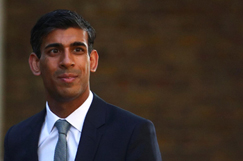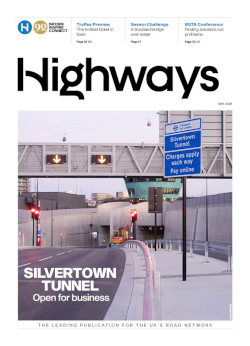Prime minister Rishi Sunak has delayed the Government's ban on the sale of new petrol and diesel cars and vans from 2030 to 2035, potentially slowing the transition to electric vehicles.
The 2030 date was first brought in under Boris Johnson in 2020 when Mr Sunak was chancellor.
Today, Mr Sunak said: 'The up-front costs [to electric vehicles] are high and we have further to go to get the charging infrastructure truly nationwide, and we need to strengthen our own auto industry so we aren't reliant on heavily subsidised carbon-intensive imports from countries like China
'So to give us more time to prepare, we are going to ease the transition to electric vehicles. You will still be able to buy petrol and diesel cars and vans until 2035 and even after that you will still be able to buy and sell them second-hand.'
He added: 'I expect that by 2030 the vast majority of cars sold will be EVs.'
The prime minister also pledged not to bring in any new taxes on aviation.
Despite outlining a number of policies that either abandoned or delayed the Conservative Government's previous position on green issues, he asserted that the UK would still make its 2050 net zero target.
“Rishi Sunak said he blocked plans to tax meat, introduce compulsory car sharing and make people sort their rubbish into seven bins. Can you remind me when these things were actually going to happen? Maybe I've got amnesia. I can't remember any of these”pic.twitter.com/QviZt6nwKi
— Sophy Ridge (@SophyRidgeSky) September 20, 2023
The prime minister was criticised by both Labour and Conservative politicians for suggesting he would ban policies that had never even existed - like enforced carpooling or sorting domestic recycling into seven bins.
Social media posts saying Number 10 was 'stopping' these 'heavy handed measures' drew criticism from across the political spectrum.
Mr Sunak also pledged that the Government would soon bring forward the UK's 'first-ever spatial plan for energy infrastructure'.
'We will speed up planning for the most nationally significant projects and end the first come first served approach to grid connection by raising the bar to enter the queue.'
The PM committed £150m towards a green future fellowship to support at least 50 scientists and engineers to develop new green technology.
Senior figures in the car industry were highly critical of the Government's move.
Ford UK chair Lisa Brankin said: 'Our business needs three things from the UK government: ambition, commitment and consistency/ A relaxation of 2030 would undermine all three.
said: 'Our business needs three things from the UK government: ambition, commitment and consistency/ A relaxation of 2030 would undermine all three.
'We need the policy focus trained on bolstering the EV market in the short term and supporting consumers while headwinds are strong.'
Shadow climate secretary Ed Miliband said: 'If the Government delays the petrol and diesel phase-out to 2035 it will whack up costs on British families.'
He shared a previous UK Government analysis before former PM Mr Johnson brought the band forward to 2030, that stated: 'New electric cars and vans are likely to be cost-saving from a social perspective during the 2020s, with upfront cost-parity reached by 2030.
'On this basis, the cumulative costs of passenger cars and vans are likely to be lower if the end of sales is brought forward to 2030 compared with a later date.'
Under Theresa May, the UK Government had initially introduced the ban on new petrol and diesel car sales with a 2040 deadline, making this the third major change in EV policy in as many Conservative prime ministers.
Asif Ghafoor, CEO and co-founder of Northern charging network Be.EV, said: 'Today’s announcement to push the ICE ban back to 2035 is the polar opposite to the ambition and bold strategy we need to see from the government right now.
'The Government is no longer leading Britain’s net zero transition. Their internal squabbles and indecisiveness have created a total loss of faith in any new measures or goals they announce. It will now fall on the public to drive the changes they want to see and the market to respond to that demand.
'For the EV industry, we have to push on with business as usual. The EV transition is happening - that horse has well and truly bolted.'





